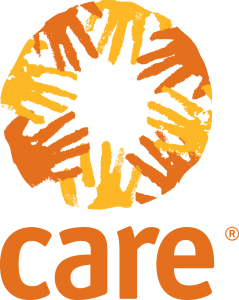CARE Bangladesh: Social and Economic Transformation of the Ultra-Poor (SETU)
Community Led, Voice and Value Chain Focus
The SETU project has been implemented in two phases. The first phase directly supported 20,000 beneficiary households (BHHs) for 3 years. Upon completion of the first phase in early 2012, Care is currently directly supporting an additional new batch of 20,000 BHHs for another 3 years. Phase 1 BHHs will continue to be monitored and supported by Care on a needs-basis, and all eligible households from Phase 1 and Phase 2 will benefit from the Nutrition Component addition.
Phase 1
Start Date: March 2009
End Date: February 2012
Phase 2
Start Date: 1 March 2012
End Date: 31 December 2015
Project Area
The project is implemented in 25 Unions of 7 Upazilas in the districts Gaibandha, Rangpur, Nilphamari and Lalmonirhat.
See the project areas on Google Maps
Target
20,000 Beneficiary Households (BHH) Phase 1
20,000 Beneficiary Households (BHH) Phase 2
Total = 40,000 BHHs
Years to Graduate
3 years
Budget & Cost per BHH (for Phase 2)
The total livelihoods budget is BDT 411,187,573
cost per BHH is BDT 20,559
of which direct delivery cost per BHH is BDT 10,667
The total nutrition budget is BDT 88,538,875
cost per BHH is BDT 2,213
of which direct delivery cost per BHH is BDT 1,944
Key Aspects
- Facilitating a community and voice-led approach to social and economic empowerment;
- Empowering the beneficiaries to claim rights and concurrently influence duty bearers to comply with their obligations;
- Providing a holistic and sustainable way of working to promote the economic, social and political empowerment of the extreme poor;
- Building diversified skills for the target beneficiaries and involving them in different IGAs;
- Engaging BHHs in productive and profitable non-farm IGAs and development of a pro-poor value chain and village industries;
- Establishing linkages with the other members of the community, local authorities and institutions;
- Improving access to and the use of resources, public and private services;
- Promoting asset building, community enterprise development, income and employment generation;
- Forming Para Unnayan Committees (PUC) at village level and apex bodies to support capacity building initiatives, undertaking collective actions against discrimination and exploitation, asset transfers, community enterprises, increasing voice to realise basic services and safety nets;
- The model will take 3 years for the minimum level of graduation of BHH;
- It is proposed that Care will continue working with this target group for another 4 years to ensure the sustainability of their graduation.
Outputs
- Mobilised the target group through a community-led development;
- Promoted social inclusion;
- Increased economic empowerment;
- Enhanced pro-poor governance;
- Increased wider policy-making processes.
See the works of SHIREE funded SETU project of CARE Bangladesh on flickr

